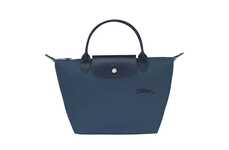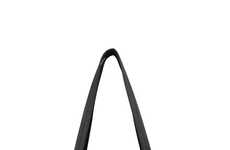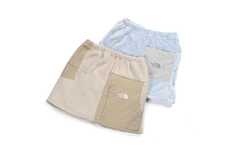



Brands are salvaging and upcyling deadstock textiles to support sustainability
Trend - Luxury, streetwear, and eco-friendly fashion brands are increasingly using "deadstock" textiles when producing garments. The term refers to left over fabrics of other fashion houses who overestimated their needs, and rather than sending these textiles to landfills, brands are salvaging them to support sustainability.
Insight - The environmental crisis has prompted many people to reconsider their purchases and the resources that were used in the creation of the product, especially in regards to apparel. As information comes to light about the damaging production process of fashion–from waterway pollution from clothing dye to the enormous amount of water use to grow cotton–consumers are veering away from fast-fashion in favor of products that use resources already in circulation. These conscious consumers demand more accountability from brands and will support brands that align with this eco ethos.
Insight - The environmental crisis has prompted many people to reconsider their purchases and the resources that were used in the creation of the product, especially in regards to apparel. As information comes to light about the damaging production process of fashion–from waterway pollution from clothing dye to the enormous amount of water use to grow cotton–consumers are veering away from fast-fashion in favor of products that use resources already in circulation. These conscious consumers demand more accountability from brands and will support brands that align with this eco ethos.
Workshop Question - How can your brand offer support to environmentally friendly causes?
Trend Themes
1. Deadstock Textiles - Brands are using leftover fabrics to reduce waste and upcycle resources.
2. Upcycling Collaborations - Collaborations that upcycle excess inventory and used materials to create unique and creative designs are on the rise.
3. Zero-waste Fashion - Designers are turning to zero-waste initiatives in order to reduce waste and maximize use of available resources.
Industry Implications
1. Fashion - The fashion industry must adapt to changing consumer preferences by creating eco-friendly products and utilizing sustainable production methods.
2. Retail - Retailers can leverage the trend of upcycling in order to reduce waste and incorporate unique designs into their product offerings.
3. Manufacturing - Manufacturers should consider the impact of their production processes on the environment, and implement sustainable practices such as using leftover materials in order to reduce waste.
4 Featured, 36 Examples:
66,454 Total Clicks
Date Range:
Sep 20 — Aug 21
Trending:
Hot
Consumer Insight Topics:




































